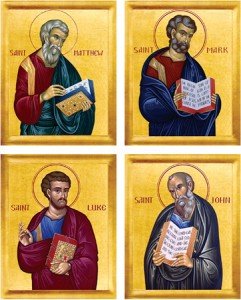 It seems that Christians have always attempted, even shortly after the texts of the New Testament were written down, to discover the real meaning of what was written. The application to the New Testament (NT) of the principles of literary criticism (a study of the content of the NT) and of historical criticism (a study of the historicity of the documents) has a history that ranges from the second century to the present.
It seems that Christians have always attempted, even shortly after the texts of the New Testament were written down, to discover the real meaning of what was written. The application to the New Testament (NT) of the principles of literary criticism (a study of the content of the NT) and of historical criticism (a study of the historicity of the documents) has a history that ranges from the second century to the present.
There are a number of PIONEERS in the early Church who studied the NT with regard its content and historicity. The first of these is Marcion (150 CE), who the Church declared a heretic, repudiated the OT (Old Testament) and Judaism and produced a truncated NT canon to conform to his teaching. By so doing, he moved the Church to counter his teaching by producing an orthodox NT canon.
Tatian (175 CE), a Syrian convert to Christianity, was another 2nd century pioneer who made an attempt at criticism of the NT. His work was the first harmonization of the four Gospels, presented as a single, continuous narrative.
The greatest ante-Nicene scholar in the Church was Origen (185-254 CE), the head of the famous school of Alexandria. He made two notable contributions to biblical studies. The first was his Hexapla, the earliest Christian attempt at textual criticism of the OT and the second was his realization of the importance of hermeneutics (the branch of knowledge that deals with interpretation, especially of the Bible or literary texts). Although his scriptural interpretations have been judged to be excessive, his allegorical interpretation of the Scriptures was a serious endeavor to make them relevant and meaningful to his contemporaries. The Alexandrian school had a great influence on Eastern Christianity.
Eusebius, (260-340 CE) the first Church historian, gave much valuable early information about the NT in his Ecclesiastical History. He also divided the Gospels into small numbered sections and devised a set of tables to show parallels between the various Gospels.
Augustine (354-430 CE), the great theologian of the Western Church, laid down the principles that affected the treatment of Synoptic differences for over a millennium. He was aware that the order of the Gospel narratives reflects general recollection rather than strict chronological history and that the words of Jesus are often reported with an accuracy that preserves only their sense.
